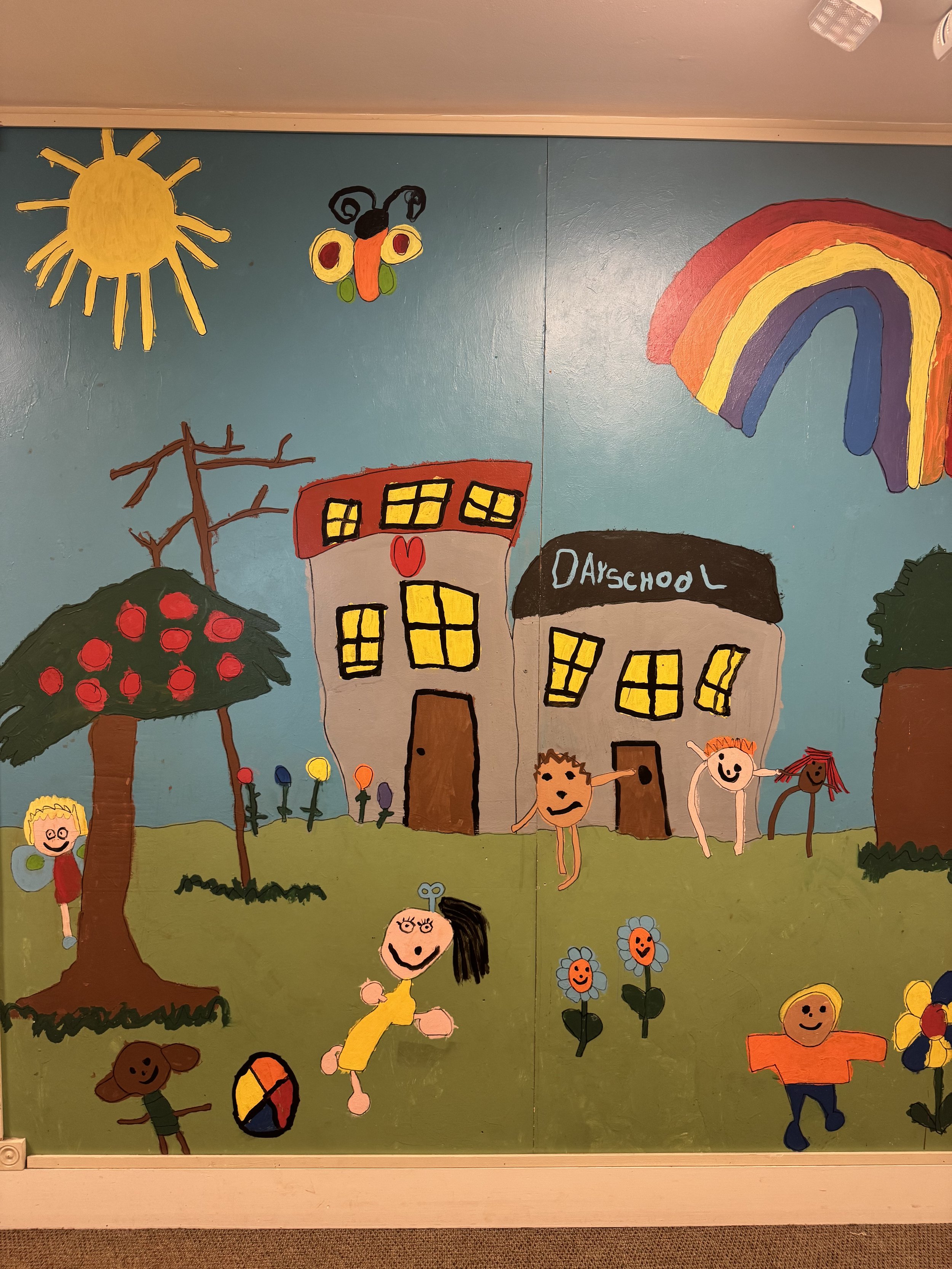History
First Presbyterian Day School was founded in 1984 as a part of the mission of First Presbyterian Church, designed to serve the needs of working families on Hilton Head Island. At the time, there were very few formal childcare options available in the area. The center opened under the leadership of Katie Robertson, our founding Director, and Sissy Jarell, President of the FPDS Board of Directors. It was accredited by the National Association for the Education of Young Children (NAEYC) in the early ‘90s, and followed best practices in early childhood education.
During a NAEYC conference visit one year, several of our educators were introduced to the Reggio Emilia approach. Inspired by what they learned, the team returned home energized and unified in their desire to evolve the school’s approach. This transformation was not immediate, it required hard work, passion, and deep commitment over time.
As the school began embracing Reggio-inspired practices, the educators’ passion continued to grow. Eventually, several staff members traveled to Reggio Emilia, Italy to participate in a study tour. They returned with a wealth of knowledge and inspiration, which they shared with their colleagues. From there, the Reggio philosophy became an integral part of our school’s identity.
Today, First Presbyterian Day School continues to grow in its Reggio-inspired practice, honoring the dedication and vision of the educators who helped shape its journey. We remain committed to preserving our school’s legacy while continually learning and evolving.
Educational Approach
The Day School is also a Reggio-inspired school, grounded in South Carolina Early Learning Standards. It is governed by the idea that very young children are competent and capable learners, able to explore and discover concepts through the project approach. The program flourishes on relationships among children, Educators, parents and the environment. The curriculum emerges following the lead of the children and their interests. Photographs, transcribed dialogues, and the work by children using various media are displayed as a way to inform parents, Educators and the community of their experience. The documentation stimulates children to ask more questions, participate in further discussions and pursue additional explorations. There is a balance of active and quiet play, indoor and outdoor activities, as well as individual, small group, and large group activities.
The learning experiences and projects are enhanced by learning journeys (field trips) throughout the community. The Reggio-Emilia approach is an educational experience that consists of careful reflection, practice, and assessment and has been backed by decades of research that it supports early childhood and later life success indicators.
Reggio Emilia Core Values:
The Image of the Child: Strong, curious, competent, and full of potential.
Environment as the Third Teacher: Parents are the first teachers, and Educators as are the second. The environment is carefully and intentionally set up to provoke curiosity, exploration, and conversation.
Collaboration: Educators, families, the community, and children partner together to learn together.
A Hundred Languages: Children have a hundred ways of expressing themselves; words, music, art, reading, building, writing, speaking...etc
Emergent / Project Approach: Topics of study emerge from children’s interests and conversations.
Documentation: Educators are consistently observing, documenting, and assessing. Work displays make learning visible, encourages reflection, and loops families in. Children have Journey Books.
Educators: Often just as much learners as the children are. Intentionally and curiously listen to children, ask questions, challenge, and scaffold.
The Reggio approach began in the town of Reggio Emilia, Italy, after World War II. Founded by educator Loris Malaguzzi in collaboration with local parents, the philosophy emerged from a desire to build a more just and compassionate society through education. Rooted in respect for children as capable and full of potential, the approach emphasizes inquiry-based learning, strong relationships, and the environment as a powerful teacher. Today, schools around the world draw inspiration from this innovative, child-centered philosophy.
Interested in learning more about the Reggio-Emilia philosophy? Purchase The Hundred Languages of Children here!
Official Reggio's Children Website: https://www.reggiochildren.it/en/


